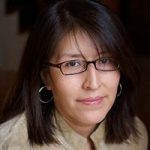-What is your academic background and what is your current position in UCHI/at UConn/Your Home Institution?
I am a Ph.D. candidate in English at the University of Connecticut and a dissertation fellow at UCHI. I received my masters in English from UConn and my bachelor’s degree in English at Southern Connecticut State University.
-What is the project you’re currently working on?
I am writing a dissertation titled “The Return of Dagon: Failed Iconoclasm in Early Modern English Literature.” The dissertation explores the intersection between English Renaissance literature and the iconoclastic movements of the post-Reformation period. It argues that early modern writers were often interested in the ways in which idolatrous artifacts might survive, resist, or even undermine the actions and intentions of their assailants. I maintain that this archive of failed iconoclasm calls into question theories of disenchantment applied to the Reformation. Iconoclasm, I show, ironically provoked a broad cultural interest in the agency of material artifacts.
-How did you arrive at this topic?
During my reading of English literature and polemical pamphlets, I became increasingly interested in the deep-seated fear among radical Protestants about the dangers of idolatry. Why were these radicals so fearful of idolatry, if, as they claimed, idolatrous objects and images were merely “dumb,” lifeless, or inert?
My interest is probably also driven by my Roman Catholic upbringing. Having once been an altar boy, I had close proximity to the kinds of ritual artifacts—incense, candles, bells, liturgical vestments, crucifixes, stained glass windows—that radical Puritans of the early modern period would find abominable.
-What impact might your work have on a larger public understanding of your topic?
Public discourse surrounding iconoclasm typically presents it as absolute loss: We deplore iconoclasm because it violently erases our access to the past. My dissertation shows that early modern people often thought about iconoclastic incidents much differently. They did not automatically equate iconoclasm with erasure. Rather, they were often attentive to how certain artifacts might survive or resist the process, thus calling the efficacy of iconoclasm into question. Iconoclasm, in other words, elevated early modern interest in the capacity of material artifacts to transform human actions and intentions. In the twenty-first century, our closest analogue to this might be our increasing recognition of how digital technologies transform our consciousness and behaviors in ways we cannot fully control for.
 Sandy Grande
Sandy Grande

